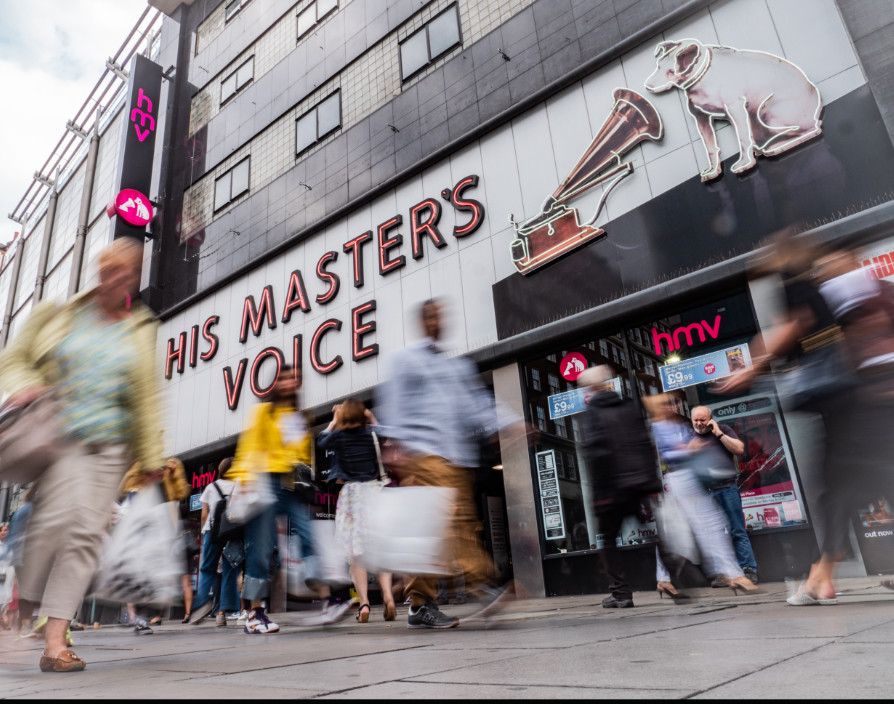Last month, HMV announced a controversial and unusual new plan to expand its store estate, with the opening of ten new stores, including a search for a new London flagship site, following the closure of HMV’s Oxford Street store back in 2018 when the company fell into administration.
This latest news shows that HMV have learnt very little from its previous dabbles with administration In 2013 and 2018, and I wonder if this next move will be like watching a sequel of the video rental chain ‘ Blockbuster, failing to identify Netflix as a threat and diversify. HMV had the potential to utilise their heritage and leverage their brand recognition to create an online streaming platform that competes with Apple music and Spotify but instead, they have chosen to romanticise the past by backing a 100-year high street status quo, which was very clearly on the decline even before the pandemic.
CD and DVD sales have no future as shown by supermarket giants like Sainsbury’s deciding to stop selling them amidst competition from streaming platforms. Streaming is the way forward with Spotify being one of the most successful music services out there, claim 36% of the global streaming market and the secret to their success is simple; consumers want quick, easy and accessible content, and businesses now need to adapt their online offerings to match that previously provided in a physical space.
HMVs decision to risk it all by backing the high street highlights a lack of learning from their past mistakes and move with the times. The reality is that any business ‘ of any size and in any sector ‘ needs to be agile and respond to changing market conditions and their model must reflect modern consumer buying habits. Rather than becoming complacent, businesses need to listen to their customers and look at the state of the current market if they are to understand how to keep pace with changing demands.
Last year, the UK’s e-commerce sector experienced its highest annual growth since 2007 with online sales up 36% YOY. Whilst this was the result of successive lockdowns and social distancing restrictions, the impact of this has changed consumer habits have changed for the long term.
Retail therapy was once seen as a pleasant day out and a opportunity to treat yourself, walking from shop to shop, stopping for a coffee and some lunch; however, since the decline of active retail outlets, the footfall is rapidly fading away and has resulted in ongoing store closures and job losses, all contributing to the inevitable decline of the high street.
Take John Lewis – one of the most successful department store businesses in the UK, as an example. Traditionally, they have been known for stores so big that you can get lost in them for hours. Yet this year, the company has confirmed plans to permanently close eight more outlets after its first-ever full year loss. Taking dramatic action, John Lewis now plan to focus on a few hero products that will be presented to customers by well-trained ambassadors in their stores. Customers who like these products can then go home and order them online allowing John Lewis the ability to adapt their business model to suit their clients needs
With key players retracting from the high street and investing heavily on ecommerce, HMV will now be relying on customers coming into town centers or shopping districts specifically to visit them and with passing trade low, there will be little chance of an impact sale from people popping in for a browse.
With the online sales rapidly gaining pace and over-taking in-store sales, it is impossible to see how HMV are justifying their decision to back brick and mortar expansion plans as a sensible business model. Doug Putman, the music entrepreneur who brought HMV from administration in 2019 has said that When everything is shrinking, it’s a good time to grow, however, if you plan to grow against the market and ignore the consumer demands of your target demographic, you may as well throw good money after bad.
Only time will tell if their gamble will pay off. However, the fact that HMV are not looking to sign any long-term deals suggests that even they are not a hundred percent certain about the future of the high street.
“
Share via:








































